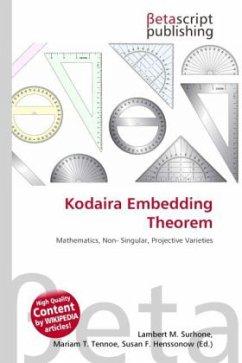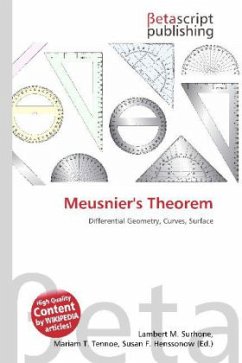High Quality Content by WIKIPEDIA articles! Bézout's theorem is a statement in algebraic geometry concerning the number of common points, or intersection points, of two plane algebraic curves. The theorem claims that the number of common points of two such curves X and Y is equal to the product of their degrees. This statement must be qualified in several important ways, by considering points at infinity, allowing complex coordinates (or more generally, coordinates from the algebraic closure of the ground field), assigning an appropriate multiplicity to each intersection point, and excluding a degenerate case when X and Y have a common component. A simpler special case is that if X and Y are both real or complex irreducible curves, X has degree m and Y has degree n then the number of intersection points does not exceed mn. More generally, number of points in the intersection of 3 algebraic surfaces in projective space is, counting multiplicities, the product of the degrees of theequations of the surfaces, and so on.
Bitte wählen Sie Ihr Anliegen aus.
Rechnungen
Retourenschein anfordern
Bestellstatus
Storno








